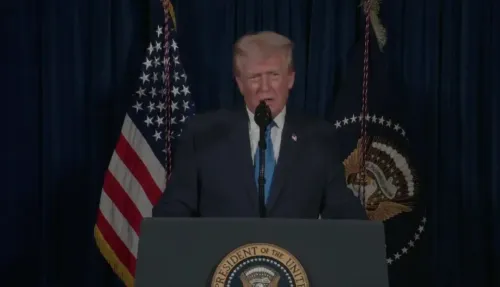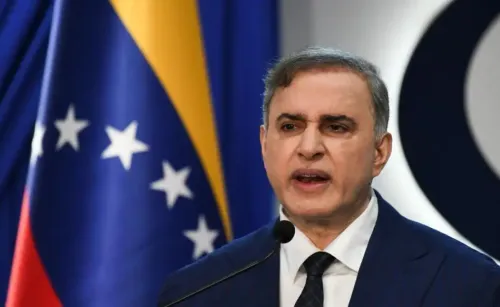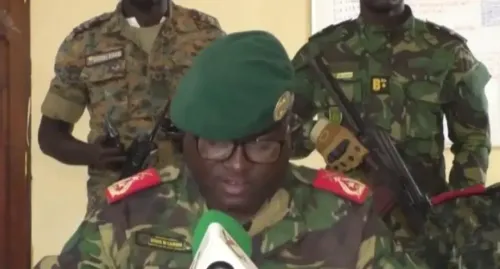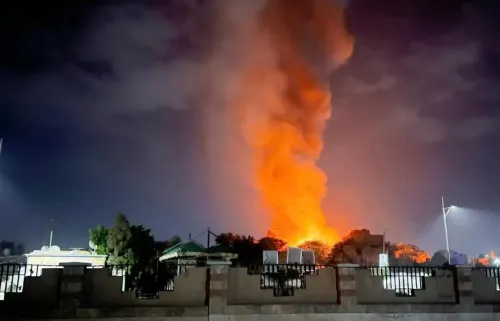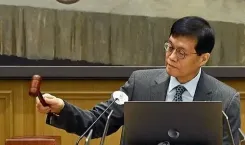White House Acknowledges Direct Negotiations with Hamas for Hostage Release
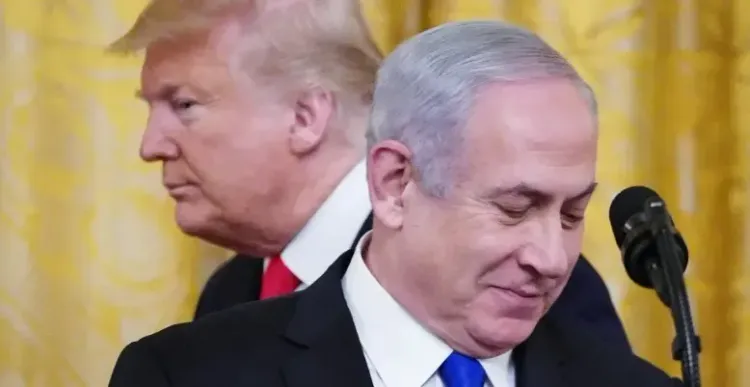
Synopsis
Key Takeaways
- The Trump administration is engaging in direct talks with Hamas.
- Discussions aim to secure the release of hostages held by Hamas.
- Israel was consulted regarding these negotiations.
- A comprehensive deal for a long-term truce is being explored.
- A humanitarian crisis exists in Gaza amid ongoing discussions.
Washington, March 6 (NationPress) The White House has confirmed that the Trump administration is engaged in direct discussions with Hamas focused on the release of hostages.
The negotiations, initially reported by Axios, took place in Doha, Qatar, over the past few weeks and were led by Adam Boehler, the U.S. Presidential envoy for hostage affairs.
In a press briefing on Wednesday, White House Press Secretary Karoline Leavitt stated that "the special envoy involved in these negotiations possesses the authority to communicate with anyone," and noted that "Israel was consulted regarding this matter," as reported by Xinhua news agency.
Leavitt emphasized, "Engaging in dialogue and communicating with global entities to act in the best interest of the American populace is something the President believes exemplifies a sincere effort to do what's right for Americans."
When questioned about the discussions, Leavitt declined to provide specific details, indicating that they pertain to "ongoing talks and discussions," particularly concerning President Donald Trump's proposal regarding the Gaza Strip, currently under Hamas governance.
"I will not disclose details here as there are American lives at stake," she remarked.
An official from the U.S., as cited by Axios, mentioned that the discussions also encompass a comprehensive agreement to secure the release of all remaining hostages and establish a long-term ceasefire.
According to Axios, there are still 59 hostages in Hamas's custody, with the Israel Defense Forces confirming that 35 of them are deceased.
Among these hostages, five are Americans, with only one believed to be alive.
Historically, the U.S. has refrained from direct communication with Hamas since designating them as a "terrorist" organization in 1997.
Israel has confirmed it was consulted by the U.S. regarding these direct talks.
Israeli officials stated that approximately 24 living captives, including Edan Alexander, an American national, as well as the remains of at least 35 others, are still held in Gaza.
"We understand this is to secure the return of the bodies of Israeli-American captives still in Gaza and one Israeli captive with U.S. citizenship believed to be alive," they noted.
The confirmation of these talks comes shortly after the initial phase of the Israel-Hamas ceasefire expired, with Israel seeking an extension while Hamas insists on moving forward to the second phase of the agreement reached in January.
The first phase saw Hamas release 33 hostages in exchange for Israel freeing over 2,000 Palestinian prisoners and detainees.
Israel has indicated that the proposal to extend the initial phase of the truce was drafted by U.S. envoy for the Middle East, Steve Witkoff.
This new plan would necessitate Hamas releasing half of its remaining captives in return for an extension of the ceasefire and a commitment to negotiate a sustainable truce. Israel has not mentioned releasing additional Palestinian prisoners, a significant aspect of the first phase.
After the first phase concluded, Israel suspended humanitarian aid shipments, including fuel, supplies, and medicine, into Gaza, aiming to exert pressure on Hamas to agree to the new terms—a move that Hamas condemned as a breach of the original agreement.
On Wednesday, France, the UK, and Germany cautioned Israel against using aid as a "political tool," urging it to ensure the "unhindered" delivery of humanitarian assistance to the beleaguered Palestinian territory.
"We urge the government of Israel to fulfill its international obligations to guarantee the full, rapid, safe, and unhindered provision of humanitarian aid to the population in Gaza," the nations stated in a joint declaration.
They added, "A cessation of goods and supplies entering Gaza, such as that announced by the Israeli government, would risk breaching international humanitarian law."
"Humanitarian aid should never be conditional on a ceasefire or utilized as a political instrument."
The three European nations characterized the humanitarian crisis in Gaza as "catastrophic."

